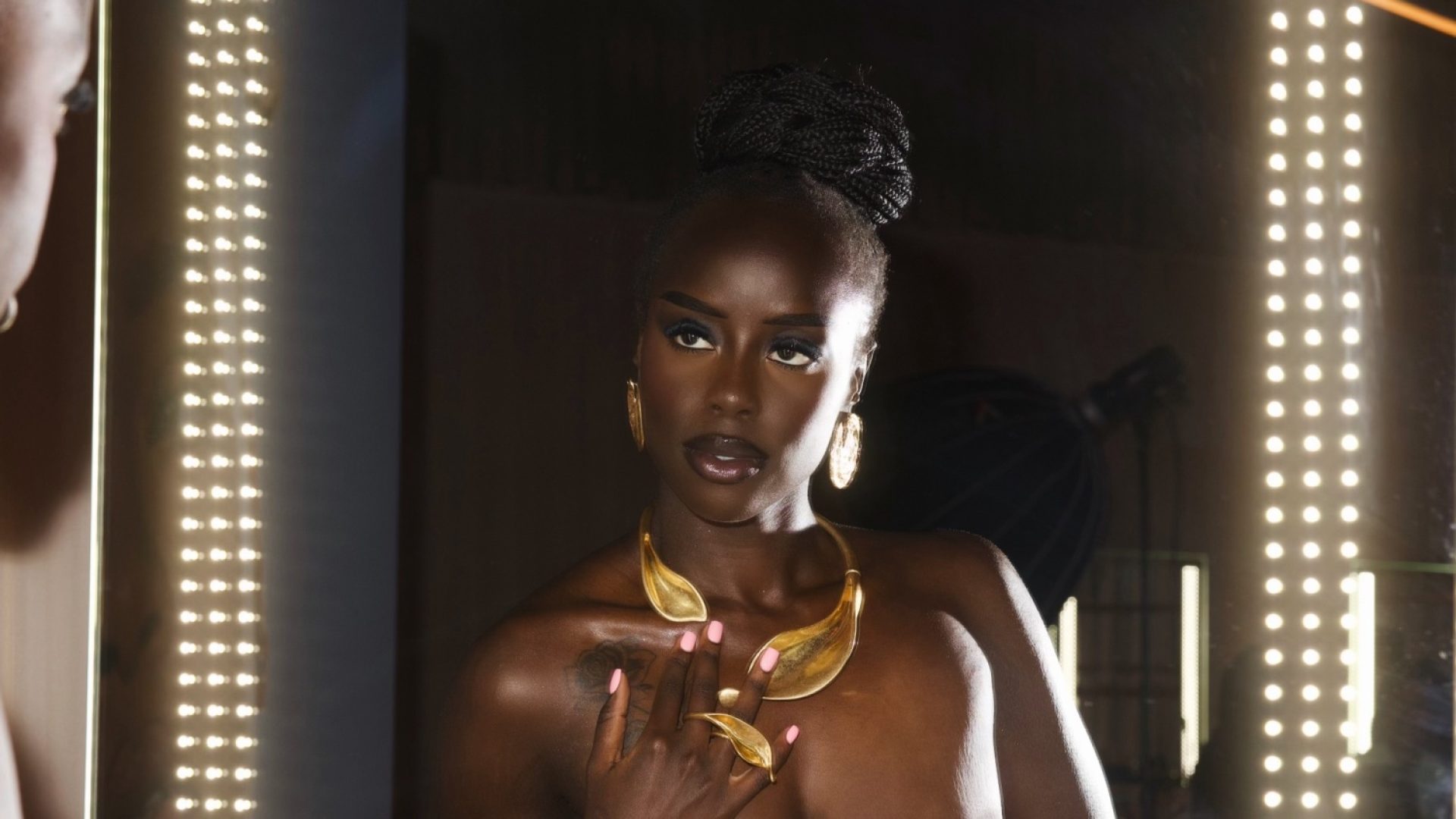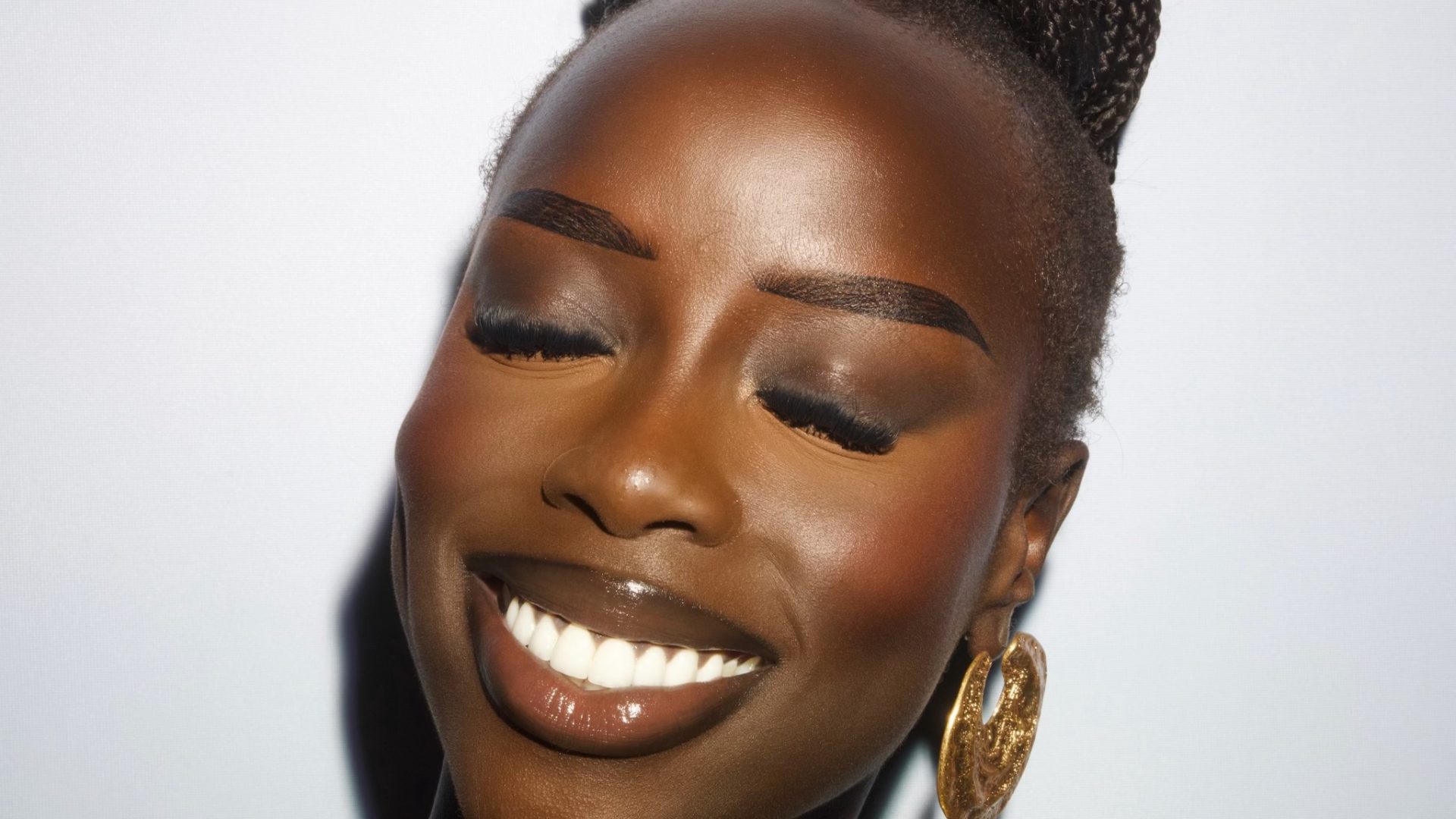
Golloria George is over colorism and anti-blackness in the beauty space. The 23-year-old is demanding more of everything. Using her platform, which she launched in October 2020, George boldly challenges beauty brands boasting diversity in their products by testing their darkest shade against her complexion. Some beauty brands get it right, but oftentimes, they fall short.
Youthforia’s Date Night Skin Tint Serum Foundation is the latest beauty buy to disappoint, coming as no surprise to George. In fact, the beauty influencer called out the brand several months before for not being inclusive. When the “universal” beauty brand expanded its palette of foundations, George had no intention of trying or creating a video about it. However, after being tagged in multiple TikToks and seeing it on the shelf in Ulta, she decided to give her 1.6 million TikTok followers her honest, unfilter opinion on the product.
“I took it home and I tried it, and at first I didn’t really want to make a video because I was just like, ‘This just feels too disrespectful,’” George tells GU. “I swatched it and looked at myself in the mirror for a good minute or two, and I was like there is no freaking way.”
Read ‘Youthforia’s Black Face Foundation And Lazy Casting Is Beyond Disrespectful’
Her video, which has now garnered over 35.4 million views, describes the darkest shade as “tar in a bottle.” She compares the foundation to black face paint and asks her followers to attempt to tell the difference. The resemblance is uncanny, leaving many viewers in shock and disturbed.
George is quite familiar with the harsh reality of a non-inclusive beauty industry. Despite Black consumers spending $9.4 billion on beauty products and contributing 12.5 percent of total beauty dollars, there is an evident disconnect in the diversity of the products on the shelves. The Austin, Texas, native navigated the aisles of drug stores, searching for the makeup section—only to find products that didn’t match her skin tone and left her looking “ashy.”
“It was just really traumatic because I think it went further than just the makeup for me; I didn’t feel like a human,” she says. “It was never that I was the issue. It was just solely the fact that the beauty industry has never been inclusive, and they’ve never catered to people with darker complexions.”
There’s a longstanding history of beauty brands blatantly disregarding dark skin. From continuous, overt mistreatment of Black creators from big-name brands, like Tarte Cosmetics, to barely having Black-owned products on the shelves, there seems to be no space for Black beauty lovers.

George’s love for cosmetics wasn’t instant. However, finding early beauty influencer Nyma Tang awakened something in her. “I was like, ‘this girl is beautiful,’” she recalls. “Her makeup tutorials [and] her darkest shade videos really elicited something, and I don’t even know how to explain it.” Thus, she began her one-sided love affair with an industry still riddled with the same lack of diversity issues.
Rihanna’s release of Fenty Beauty in 2017 changed the game for her. Then, as a freshman in college, George was excited to be able to invest in a brand that had products intentionally created for darker-skinned women. The brand that started it all remains a constant marker of her success. Reviewing the Fenty Beauty matchstick gave her some authority as an expert. Two years later, an interview with Rihanna at the launch event of her new foundation would solidify that status.
“Interviewing the BADGAL was honestly one of the most surreal things I’ve ever done,” she shared to her followers on Instagram. “such a full circle moment, and I can’t thank you guys enough for the immense amount of support and love.”
Although companies like Fenty Beauty challenged other companies to expand on their shades, work still needs to be done. “I got some stuff from Fenty Beauty, and it was really amazing, but then I wanted to try a lot of the viral products I would see on TikTok or [in stores],” George says. “When I went to Ulta, I looked at all those products and none came in my shade.”
The lack of diversity and colorism she experienced since she was younger motivated her to launch her platform two years ago. Indicative of beauty influencers like Tang and Jackie Aina, whom George credits for early wins in the beauty space, she started buying products and creating content, highlighting the clear disparities. “We don’t really see that [type of content] a lot in the beauty industry now,” she says, noting how content testing products from early social media influencers pushed brands to be more inclusive. “I feel like brands have gotten lazy.”
The request is simple: George wants all products—not just foundation—to be intentionally made with darker complexions in mind. “I think that because [Gen Z’ers] are so vocal and because we stand on business, these companies feel pressured,” she says.
About the Author: Kayla Grant is a multimedia journalist with bylines in Shondaland, Black Love, theGrio, Business Insider and more. She writes about culture, books and entertainment news. When she’s not writing, Kayla’s traveling, reading, binging TV shows, or all of the above. Follow her on Twitter: @TheKaylaGrant.